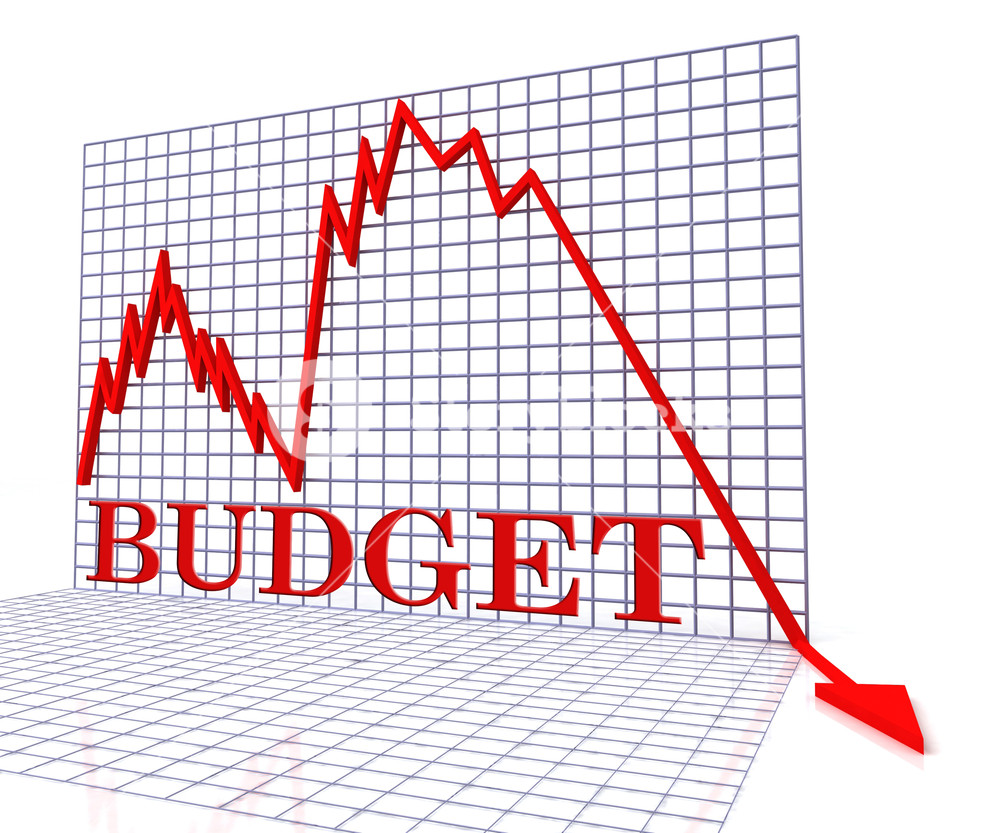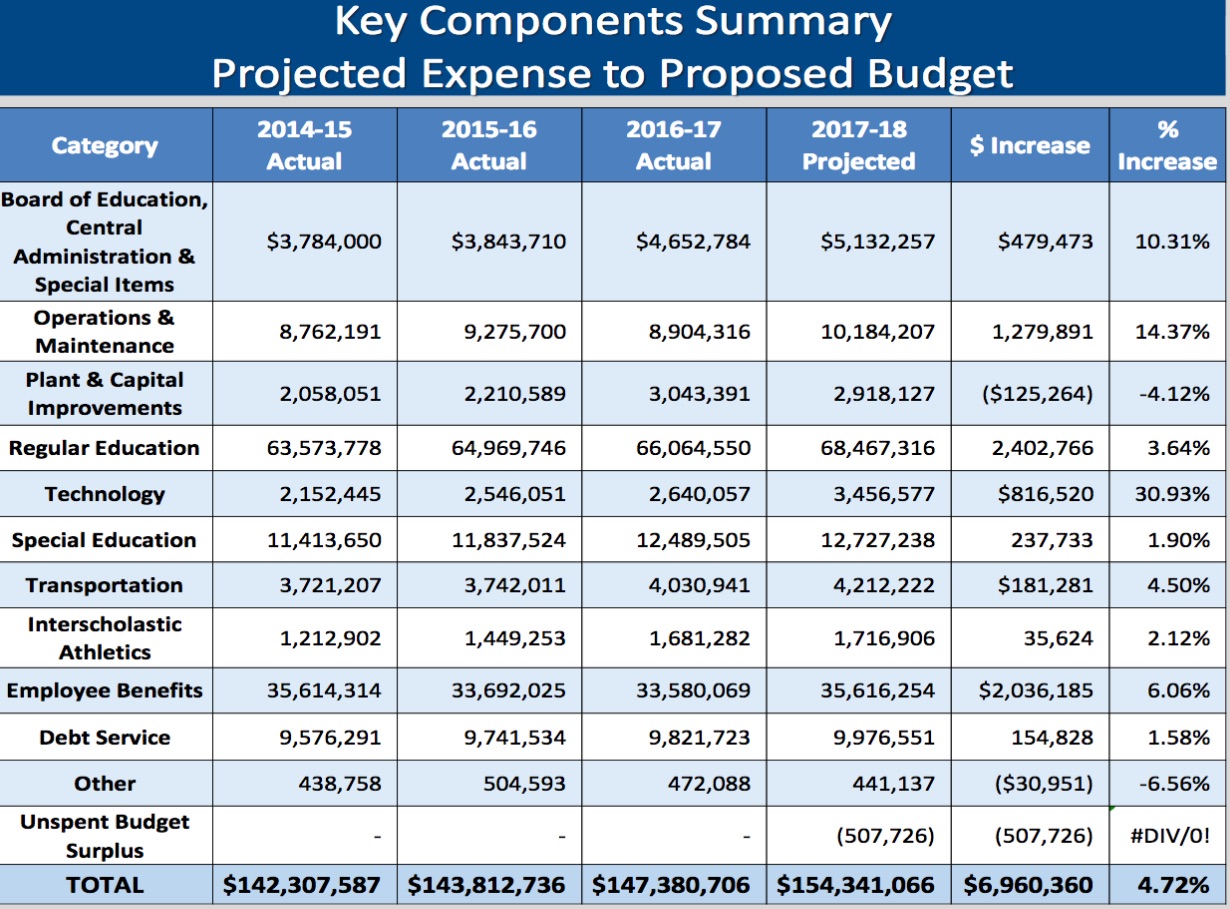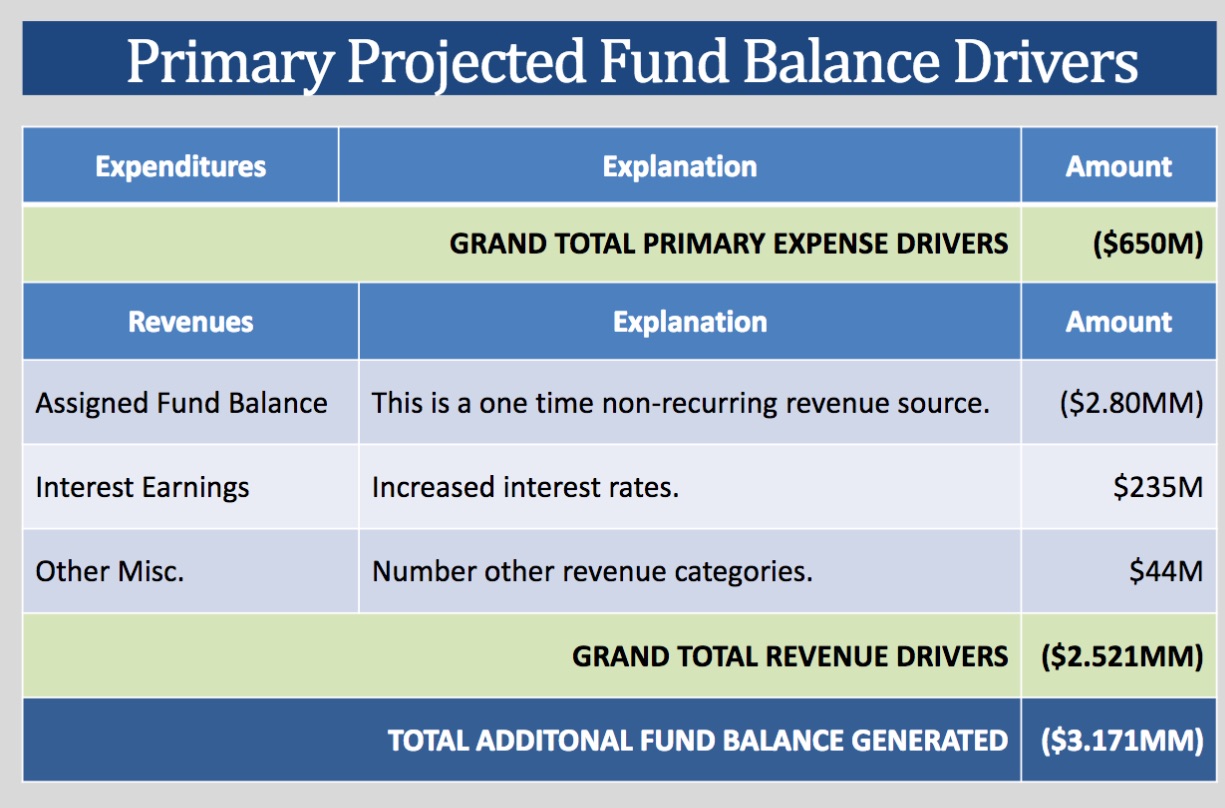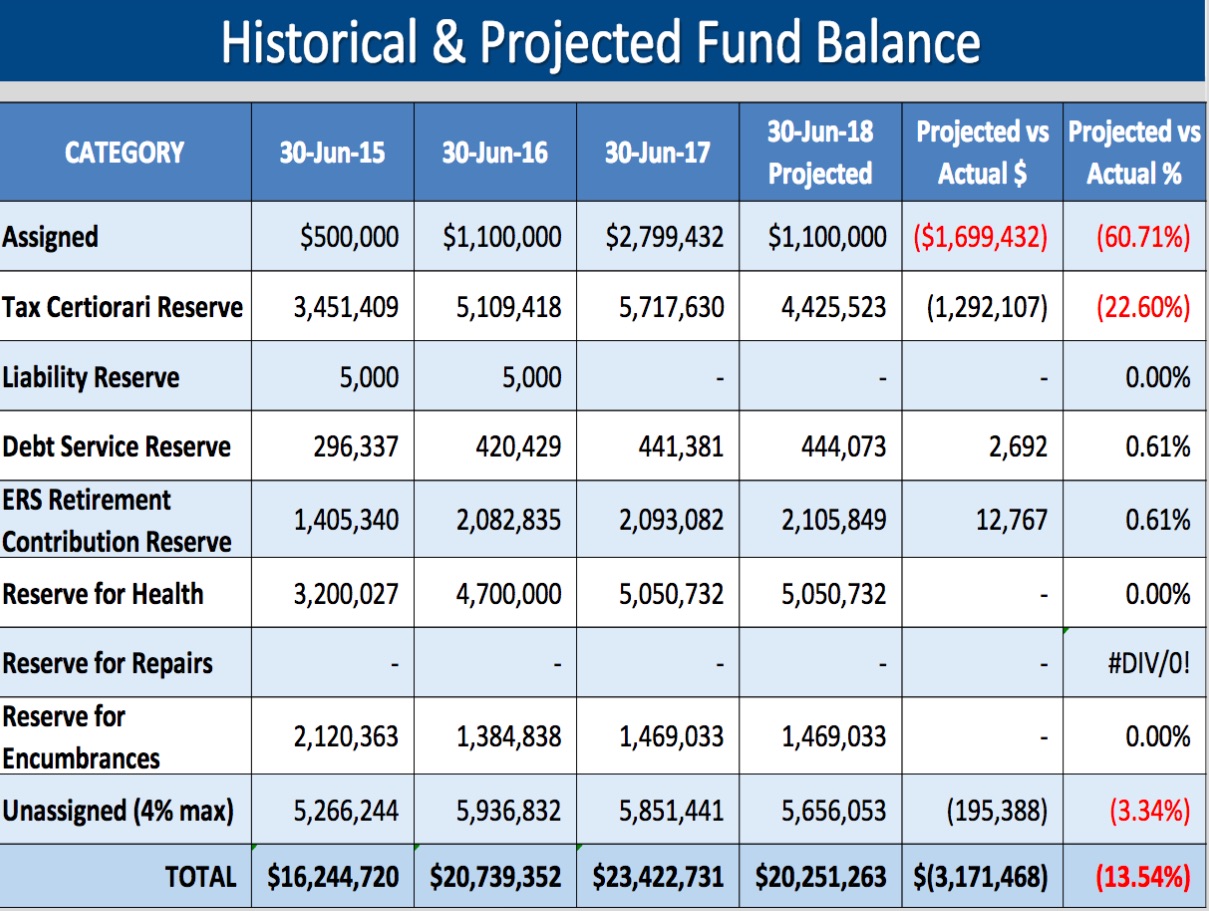School Budget Update and Thoughts on Long Term Budget Planning
- Wednesday, 03 January 2018 15:37
- Last Updated: Wednesday, 03 January 2018 17:43
- Published: Wednesday, 03 January 2018 15:37
- Joanne Wallenstein
- Hits: 6883
 In response to repeated calls for a long-term financial plan for the Scarsdale School district from community groups, Superintendent Hagerman and Assistant Superintendent Mattey unveiled the first phase of a long term plan at the Board of Education meeting on 12/11/17.
In response to repeated calls for a long-term financial plan for the Scarsdale School district from community groups, Superintendent Hagerman and Assistant Superintendent Mattey unveiled the first phase of a long term plan at the Board of Education meeting on 12/11/17.
Mattey explained the annual budget process and outlined the primary factors that drive the budget formulation including salaries, pension contributions, projected enrollment, anticipated revenues, debt service, health insurance costs, estimated fund balance and the state tax cap.
Taking a look at the current picture, he gave projections for 2018-19 for the district's contributions to the Teachers Retirement System (TRS) and Employees Retirement System (ERS), two expenses that have been volatile in the past. He reported that TRS, now at 9.8% of salaries is expected to go up to 10.5-11% for the 2018-19 school year, which could mean a $750,000 expense increase for Scarsdale. ERS, now at 15.1% is expected to remain flat at 15%.
He explained that mandated costs, such as water filters on district taps and fountains to mitigate lead will now cost the district $30,000 a year, and explained that these costs are sometimes difficult to predict.

Overall, Mattey estimated that the 2017-18 school budget would close out at $151,169,598, which is $1.1 million or .74% over the actual 2016-17 school budget.
Expenses for 2017-18 at $154,341,066 are estimated at $6.9 million (4.72%) more than the 2016-17 expenses of $147,380,706. Much of this increase is due to salaries and benefits which went up when the district added new personnel last year.
 The district will end the year with a $3,171,468 million decrease in the fund balance from $23,422,731 in June, 2017 to $20,251,263 in June, 2018. Contributing to this decrease is $2.8 million that was used to fund shortfalls from the 2014 facilities work. The district had $1.29 million in tax settlements from the tax certiorari reserve and health insurance costs are expected to be $700,000 higher than last year.
The district will end the year with a $3,171,468 million decrease in the fund balance from $23,422,731 in June, 2017 to $20,251,263 in June, 2018. Contributing to this decrease is $2.8 million that was used to fund shortfalls from the 2014 facilities work. The district had $1.29 million in tax settlements from the tax certiorari reserve and health insurance costs are expected to be $700,000 higher than last year.
Still unknown are energy costs, which are driven by winter weather. Mattey anticipated that heating costs will also rise due to expanded facilities at the high school.
The district expects to use $1.1 million of this fund balance towards next year's budget. That would leave the district with 3.57% in reserves. The state allows the district to hold a maximum of 4% of the budget in a fund balance.
The board was provided with historical data dating back to 2011, showing enrollment, tax cap rates, revenues and expenses. Mattey cautioned that the historical and trend data was not a reliable source of budget estimates for the future, but good information to consider. He said that some of the numbers are volatile and difficult to predict. Pension contributions, health insurance, utilities and the state tax cap are outside the district's control and therefore variable and unpredictable.
Mattey asked the Board to help project some of these factors in order to build a long-term plan.
Scott Silberfein asked how accurate the demographers are in estimating future enrollments. Bill Natbony asked if there were educational initiatives or new programs that the administration would like the board to consider.
Dr. Hagerman responded saying, "We're in a time of transition; Lynne Shain has announced her retirement –- that means will have a new curriculum person come in.... We have new spaces that will present opportunities. We talk about 21st century classrooms.... So we need to think about the future in terms of programming and space usage. Are we going to have answers to all of those questions by February 15? I am skeptical. There has to be elasticity that allows us to make changes each year. We have added a significant number of people over the last few years, so we won't have a big wish list this year. And we know we're at the top of our tax levy with the presentation tonight."
Lee Maude and Art Rublin asked Mattey to do two versions of the projection –including a base or optimistic case and a downsize case. Chris Morin suggested that the district employ forecasting tools used by other Westchester-Putnam districts and also form a budget planning committee to assist with finances and forecasting. Morin thought the administration should focus on long-term facilities planning, an area where the district has knowledge, data and control.
The timeline calls for further discussion of the trend analysis and budget parameters at upcoming meetings.
Art Rublin called for the administration to allow time for the community to comment on the proposed budget early on. Scott Silberfein asked that community members be given the opportunity to comment early at meetings so that they don't have to stay until 10 or 11 pm to speak.
Dr. Hagerman commented, "We understand our tax levy amount. We don't anticipate having a lot of FTE (full time employee) recommendations – and those were time consuming.... It's not going to be a complete rollover of the budget, but I don't think there is going to be a lot that will be a surprise to the board. We're not going to ask for what we don't need."
Watch the budgeting discussion here:






